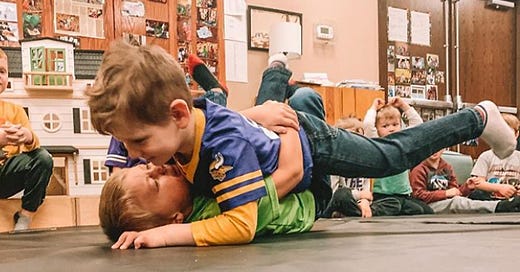Write to me at AskPhilippa@yahoo.com Subject to Terms and Conditions
Hi Philippa, My son has being saying the saddest things recently about nobody liking him and nobody wanting to play with him, I ask him questions and tonight he mentioned a younger boy at his nursery let’s call him Henry (background: Henry is about 2 and has been challenging my son for about 4 months, pushing him etc). My son let’s call him Lee said that Henry doesn’t like him and there was as issue at lunch time not sure what, I’ll try again tomorrow when he’s not tired and sad. I don’t know what to say to Lee obviously I’m reassuring him that he’s loved and liked but this seems like a big reaction for a 3 year old?? Or is this normal and I’m being over dramatic?
I’m really not sure how to handle it but I don’t want Lee to feel unheard and stop speaking to me about his feelings but at the same time I don’t want to make it worse.
Is this something you’ve noticed about other kids his age? Just not sure what to do or say and don’t want to make things worse either way.
Really I want to know what or how I can speak to Lee to make sure he feels heard and that I really understand where these feelings are coming from and help him regulate these emotions so he can be confident in himself. Any advice is truly appreciated.
Many thanks
My Answer
What your son is expressing is not unusual for his age. Children of three are starting to understand how relationships work but do not yet have the tools to navigate them with ease. When Lee says that no one wants to play with him, he may be describing a real situation or he may be describing a feeling that he cannot yet explain more precisely. Either way, it is something to take seriously without needing to be alarmed.
When my daughter was around the same age, there was a boy at her nursery who used to push her and grab the toys she was playing with. Let’s call him Hector. One day, I saw her standing in the play area of our kitchen with her hand up like a stop sign saying, “No, Hector, stop that, I don’t like it.” I did not interrupt. (Never interrupt a concentrating child!) Later, I asked her what she had been up to and she told me that she was practising what her teacher, let’s call her, Miss Wendy, had taught her to say. Miss Wendy had been coaching her, and she was rehearsing it in her own time. That lesson seemed to give her something she carried with her, through nursery, kindergatern, school, university and the world of work. Miss Wendy had given her a way to respond, she somehow embodied it and took it with her through her life, bullying has never been a significant problem since.
You could explore something similar with Lee. Try offering him phrases he could use or actions he could take. Ask him what he would like to say to Henry next time. Let him try it out at home first. If he has ideas, let him test them with you in role play. Playing is rehearsing for life.
Rather than trying to measure whether his feelings are too big, focus on making space for them. When he says, “No one likes me,” do not correct him. Say something like, “That sounds difficult for you.” Then stop. Let him continue or let him move on. Try not to rush him into feeling better. Remember, don't "deal with", "feel with".
I know we want to reassure, but reassuring can be a bit like contradicting the child. Children often learn how to handle emotions by watching how adults respond to theirs. If a child says something sad or angry and the adult is too quick to reassure, or distracts or corrects, the child may begin to think those feelings are not acceptable. If instead the adult can stay calm, listen, reflect, and stay with the child without rushing to change the feeling, the child learns that strong emotions can be managed and do not need to be feared. Your job is to take the feeings seriously, but not be alarmed by them. Those feelings are not too big for you, and by that he will eventually learn they are not too big for him.
Very young children often feel things with full intensity. They do not yet know how to soothe themselves. They learn that through relationships with adults. The parent's role is not to make the feeling go away but to help the child feel safe enough to have it.
If you continue to feel unsure, you could also talk to the nursery. See if they have observed anything that would help you understand more.
And it sounds like you are a lovely mum. I don’t think you need to worry too much.
Philippa
Recommended reading
The Book You Wish Your Parents Had Read and Your Children Will Be Glad That You Did





Beautiful. Everyone reading should pass this to two people they know! 🤩 This is the kind of learning we could be teaching in schools.
Parenting doesn’t come fully coloured in for everyone- but even the best parents would benefit from hearing sound words like these.
Such a perfect response which comforted me! And thank you Miss Wendy.